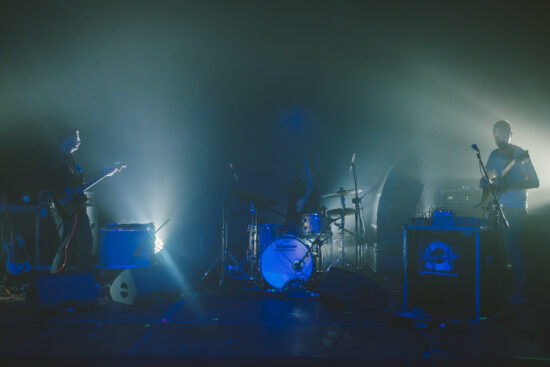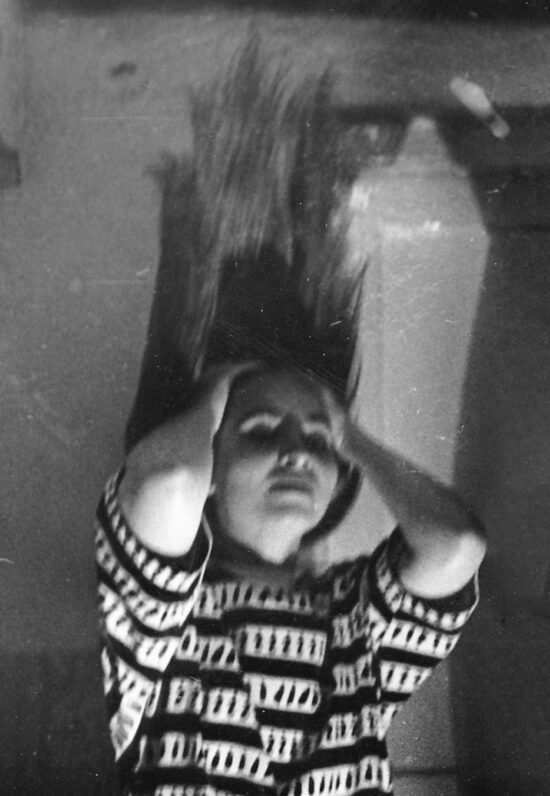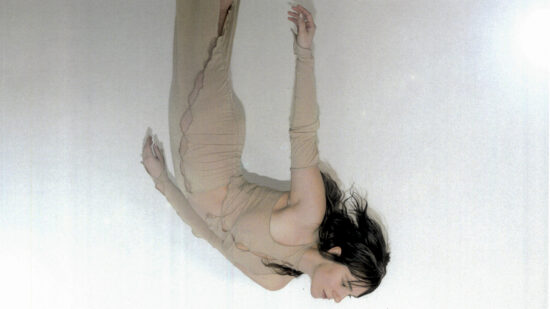Parallel Persia is an epic album, thoroughly thought out in terms of both form and narrative. SOTE delivers a brilliant combination of traditional acoustic sounds and electronica, an impressive sonic synthesis, an innovative look at what futuristic folk may sound like.
Translation: Aleksandra Szkudłapska
Over three decades ago Iranian-American composer Dariush Dolat-Shahi released Electronic Music, Tar And Sehtar, where – as indicated by the title itself – he reached for traditional Iranian instruments combined with electronica. The resulting material was a rich mix of contemporary and traditional music; in Poland, something like that could have been recorded at the Polish Radio Experimental Studio. Twelve years ago, Ata Ebtekar, recording under the moniker SOTE, released Persian Electronic Music Yesterday and Today, an impressive record that featured his own compositions on one side, and those by Alireza Mashayekhi, Iranian composer born in 1940, on the other. This was not Ebtekar’s debut – his discography had already been quite impressive at the time, and the list of labels releasing his works since the 2000s spans Warp Records, Opal Tapes and Sub Rosa, to name but a few. The list of stylistic paths he explored is sizeable too: from industrial and noise to breakcore or IDM. At one point, Iranian music tradition became an important landmark in his work, but not in the form of fake folk or the hackneyed strategy of ‘refreshing folk through electronica’. Ebtekar has a holistic approach to music, treating the old and the new like equals. He noted a breakthrough of sorts with Sacred Horror In Design two years ago (although he had already explored this direction on the earlier Hardcore Sounds From Tehran). Nevertheless, it’s his latest album released on Diagonal Records – where he takes up similar threads in an innovative fashion – that truly represents his opus magnum.
Ebtekar’s compositions are structured around the sound of the tar and santur (played live rather than sampled – that’s vital!). On Parallel Persia, he builds separate, parallel worlds using the folk sound of traditional instruments, bringing out their nuanced, dry, desert character, but playing them in a very lyrical way at the same time. The electronic structure is based on a broad range of synthesized sounds. The opening track, “Modality Transporter”, is a fantastic introduction to the subject: built using almost repetitive themes, it develops in a controlled fashion, while the acoustic sound is interlaced with futuristic, modulated electronica. This futurism will be also present further on, complementing the acoustic structure. One example thereof is “Atomic Hypocrisy”, which gets progressively more dense, while the instruments create a colourful palette in the background.
The compositions are not planned to form a simple narrative along the traditional-contemporary axis – Ebtekar treats both these threads as equally valid, shunning musical archaeology. He seems to create new possibilities for the use of contemporary language, finding common denominators between the tar, satur and tombak drum and contemporary, electrified composition. His is a clever way of coupling the evocative, characteristic sound of traditional instruments with slightly dehumanised electronica. Parallel Persia is a dual narrative: where the foreground is occupied with the sound of the aforementioned instruments, often based on complex compositional techniques backed by vocals, the background is not merely accompaniment thereto, but a fully-fledged parallel world, a futuristic vision rooted in history. With time, this electronic structure builds up, annexing subsequent parts of the material in a very evocative way (best exemplified by the final track, the acid, multi-layered “Pseudo Scholastic”).
At the same time, this promoter of contemporary Iranian music (check out his label Zabte Sote, which showcases contemporary Iranian composers), lecturer and event organiser develops his pieces in a much lighter manner than on Sacred Horror In Design – subsequent tracks are surprisingly often characterised by a lightness typical for folk, while electronica plays a compelling role of building a dense story. At the same time, Parallel Persia maintains a brilliantly coherent narrative and thought-out arrangement. Even when it goes in a rhythmical, techno-like direction – like in “Pipe Dreams”, with its steady tempo and rhythmical vocals – Ebtekar composes in a coherent manner, creating a work located at the intersection of contemporary music and futuristic electronica. A tour de force of how one may look back at tradition from the 21st-century perspective to create a contemporary story, while enhancing the Iranian legacy and possibilities of modern tools. Parallel Persia is an epic album, thoroughly thought out in terms of both form and narrative. SOTE delivers a brilliant combination of traditional acoustic instruments and electronica, an impressive sonic synthesis, an innovative look at what futuristic folk may sound like.
SOTE, Parallel Persia, Diagonal
LISTEN: 🎶Spotify, 🎶Tidal, 🎶Deezer, 🎶Apple Music




